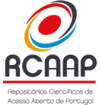Basic online education: reframing teaching itineraries and practices
DOI:
https://doi.org/10.21814/h2d.2908Keywords:
pedagogy, online learning, Brazil, FinlandAbstract
This article aims to describe implementing the process of innovation skills, associated to the BNCC guidelines from the Innopeda® pedagogical strategy. In this sense, this description will start in managers, coordinators and teachers training, conducted by the team Finnish University of Turku, and go all the way to the application of this methodological set, summarized in this work, ending with the interdisciplinary project Paraibando, which involves the disciplines of Geography, History, Portuguese and Arts. From this itinerary, we will also describe the transition from face-to-face to online teaching, discussing challenges and solutions we found in our journey to achieve a meaningful learning that develops competencies and skills in the context of the Covid-19 pandemic.
Downloads
References
Ghilardi, A., Aureliano, T., Duque, R., Fernandes, M., Barreto, A., & Chinsamy-Turan, A. (2016). A new titanosaur from the Lower Cretaceous of Brazil. Cretaceous Research, 67. https://doi.org/10.1016/j.cretres.2016.07.001
IIBGE. (2017). Divisão regional do Brasil em regiões geográficas imediatas e regiões geográficas intermediárias. IBGE.
Kairisto-Mertanen, L., Penttilä, T., & Nuotio, J. (2011). Defining innovation competence - the learning outcomes of innovation pedagogy. In I. Torniainen, S. Mahlamäki-Kultanen, P. Nokelainen, & P. Ilsley (Eds.), Innovations for Competence Management (pp. 25–33). Lahti University of Applied Sciences. https://www.researchgate.net/profile/Martin_Mulder/publication/254836115_The_concept_of_competence_Blessing_or_Curse/links/5419b89f0cf25ebee9887da0.pdf
Morin, E. (2000). Os sete saberes necessários à educação do futuro. Cortez.
Downloads
Published
How to Cite
Issue
Section
License
Copyright (c) 2020 H2D|Digital Humanities Journal

This work is licensed under a Creative Commons Attribution 4.0 International License.






